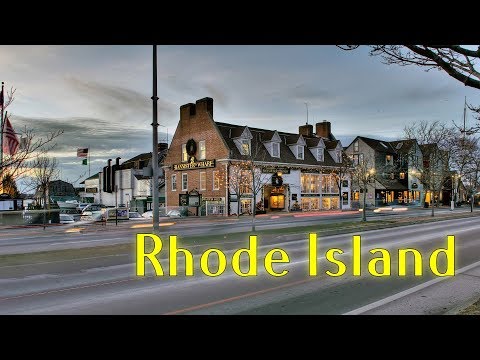Introduction: Rhode Island’s Boycott of the Constitutional Convention
Rhode Island’s decision to boycott the Constitutional Convention held in Philadelphia in 1787 was a significant event in the formation of the United States. While all other states sent delegates to the convention, Rhode Island stood alone in its refusal to participate. This article will explore the various reasons behind Rhode Island’s boycott and the impact it had on the country’s history.
Rhode Island’s Unique Perspective on the Constitutional Convention
Rhode Island had a unique perspective on the Constitutional Convention due to its size, geography, and political climate. As the smallest state in the union, Rhode Island feared that its interests would be overshadowed by larger states during the convention. Additionally, the state’s strong democratic tradition and commitment to individual liberties influenced its decision to boycott the convention.
Unresolved Concerns: Rhode Island’s Fear of a Strong Central Government
One of the primary reasons for Rhode Island’s boycott was its deep-rooted fear of a strong central government. The state was concerned that the proposed Constitution would grant too much power to the federal government at the expense of state sovereignty. Rhode Island believed that a strong central government would infringe upon the rights and freedoms of its citizens, leading to a lack of representation and potential tyranny.
Economic Motivations: Rhode Island’s Desire to Protect its Trade
Rhode Island was heavily dependent on trade, particularly with Europe and the West Indies. The state feared that the proposed Constitution would disrupt its trade relationships and impose burdensome tariffs. The absence of Rhode Island delegates from the convention allowed the state to protect its economic interests and maintain its advantageous trade position.
Rhode Island’s Opposition to Slavery and its Impact on the Boycott
Rhode Island had a strong abolitionist movement and was one of the first states to abolish the slave trade. The state’s opposition to slavery played a significant role in its decision to boycott the Constitutional Convention. Rhode Island feared that the convention would not adequately address the issue of slavery and that the proposed Constitution might even perpetuate the institution. The state’s boycott was a principled stand against the continuation of slavery.
Lack of Representation: Rhode Island’s Grievance with the Convention
Rhode Island felt that its interests would not be adequately represented at the Constitutional Convention. The state believed that the larger states would dominate the proceedings and marginalize Rhode Island’s voice. Rather than being overshadowed, Rhode Island chose to boycott the convention, asserting its right to be heard and have equal representation.
Concerns Over Individual Liberties: Rhode Island’s Stance
Rhode Island was deeply committed to individual liberties and had a long history of preserving democratic principles. The state was concerned that the proposed Constitution did not provide sufficient protections for individual rights. Rhode Island’s boycott was a way to express its stance on the importance of safeguarding personal freedoms and ensuring that the government did not encroach upon them.
Rhode Island’s Democratic Experiment and its Influence on the Boycott
Rhode Island had a unique democratic experiment during the Revolutionary War, where it operated under its own constitution. This experiment in self-governance shaped the state’s perspective on the proposed Constitution. Rhode Island wanted to preserve its democratic traditions and feared that the convention would undermine its hard-won autonomy. The boycott was a way for Rhode Island to assert its commitment to self-rule.
Resistance to Ratification: Rhode Island’s Relationship with the Constitution
Even after the Constitutional Convention, Rhode Island remained resistant to the ratification of the Constitution. The state, like others, demanded the inclusion of a Bill of Rights to protect individual liberties. Rhode Island’s boycott at the convention was indicative of its broader reluctance to fully endorse the Constitution until it addressed the state’s concerns adequately.
Political Rivalries: Rhode Island’s Boycott as a Political Maneuver?
Some historians argue that Rhode Island’s boycott may have been driven by political rivalries within the state. There were deep divisions between the rural and urban areas, as well as between the Federalists and Anti-Federalists. The boycott of the convention may have been a political maneuver to maintain the status quo or gain an advantage in the ongoing internal political struggles.
Assessing the Impact: The Legacy of Rhode Island’s Boycott
Rhode Island’s boycott of the Constitutional Convention had a lasting impact on the country’s history. It demonstrated the state’s commitment to its principles, including individual liberties, state sovereignty, and opposition to slavery. Rhode Island’s absence from the convention also highlighted the challenges of achieving consensus among all states and the difficulties in balancing competing interests.
Conclusion: Rhode Island’s Boycott and its Significance in History
Rhode Island’s decision to boycott the Constitutional Convention was driven by a combination of factors, including its fear of a strong central government, desire to protect its trade, opposition to slavery, lack of representation, concerns over individual liberties, democratic experiment, resistance to ratification, political rivalries, and its lasting impact. The boycott served as a powerful statement of Rhode Island’s values and contributed to the ongoing debate surrounding the formation of the United States.




